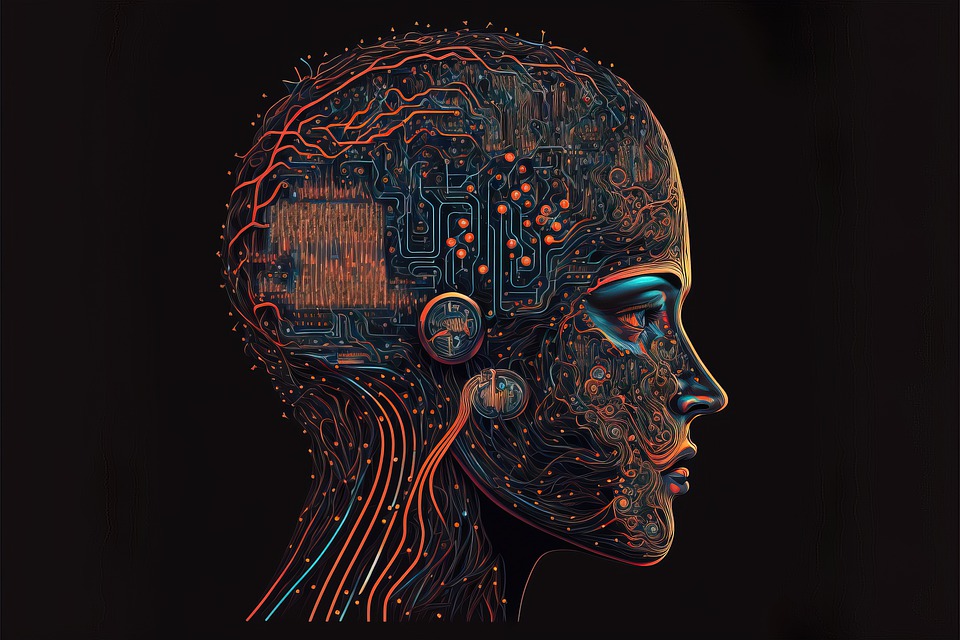Artificial Intelligence Advancements: Revolutionizing the Way We Live and Work
Artificial Intelligence (AI) has been a rapidly growing field in recent years, with significant advancements being made in various areas. From machine learning and natural language processing to computer vision and robotics, AI has the potential to transform numerous aspects of our lives. In this article, we will explore some of the latest AI advancements and their implications on our daily lives and industries.
Machine Learning: The Backbone of AI
Machine learning is a subset of AI that enables computers to learn from data without being explicitly programmed. This technology has led to significant breakthroughs in areas such as image and speech recognition, natural language processing, and predictive analytics. For instance, machine learning algorithms can analyze medical images to detect cancerous tumors, identify fraudulent transactions in finance, and provide personalized recommendations in e-commerce.
Natural Language Processing (NLP): Conversational AI
NLP is another key area of AI research that enables computers to understand, interpret, and generate human language. This technology has led to the development of chatbots, virtual assistants, and voice-controlled devices. For example, Amazon’s Alexa and Google Assistant use NLP to understand voice commands and respond accordingly. NLP is also being used in customer service, allowing businesses to provide 24/7 support to their customers.
Computer Vision: AI-Powered Cameras
Computer vision is a subset of AI that enables computers to interpret and understand visual data from images and videos. This technology has led to significant advancements in areas such as facial recognition, object detection, and image classification. For instance, facial recognition technology is being used in security systems to identify individuals, while object detection is being used in self-driving cars to detect pedestrians and obstacles.
Robotics: AI-Powered Automation
Robotics is another area of AI research that is transforming manufacturing, healthcare, and other industries. AI-powered robots can perform tasks that require precision, speed, and dexterity, such as assembly, welding, and surgery. For example, robots are being used in manufacturing to assemble products with high accuracy and speed, while in healthcare, robots are being used to perform surgeries with precision and minimize human error.
Impact on Industries
The advancements in AI are having a significant impact on various industries, including:
- Healthcare: AI-powered diagnostic tools are improving patient outcomes, while robotic surgery is reducing complications and recovery time.
- Finance: AI-powered trading platforms are providing investors with real-time insights and recommendations, while fraud detection algorithms are reducing financial losses.
- Manufacturing: AI-powered robots are improving product quality, reducing production time, and increasing efficiency.
- Transportation: AI-powered self-driving cars are improving road safety, reducing traffic congestion, and enhancing passenger experience.
Challenges and Concerns
While AI has the potential to transform various industries, there are also challenges and concerns that need to be addressed. Some of the key concerns include:
- Job displacement: AI-powered automation may displace certain jobs, requiring workers to upskill and reskill.
- Data privacy: AI algorithms require large amounts of data, which raises concerns about data privacy and security.
- Bias and ethics: AI algorithms can perpetuate biases and ethics, requiring careful consideration of moral and ethical implications.
Conclusion
Artificial Intelligence advancements are transforming various aspects of our lives and industries. From machine learning and NLP to computer vision and robotics, AI has the potential to improve efficiency, productivity, and accuracy. However, it is essential to address the challenges and concerns associated with AI, such as job displacement, data privacy, and bias and ethics. As AI continues to evolve, it is crucial to ensure that its benefits are shared by all, and its negative impacts are minimized.

